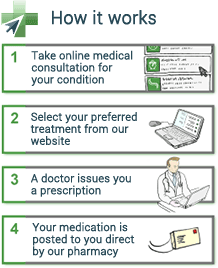
Psoriasis is an autoimmune disease of the skin. It causes the rate at which the skin cells grow (turnover) to increase. This results in skin cells accumulating on the skin’s surface. Psoriasis is not a contagious condition and you cannot catch psoriasis by touching areas of skin affected by the disease.
The most common form of psoriasis is called plaque psoriasis. It appears on the elbows, the knees, the lower back and the scalp as thick, itchy, red patches. These are covered with scales that may crack and bleed.
There are four other types of psoriasis besides plaque psoriasis: guttate psoriasis (red spots that appear on the arms, the legs and the body), pustular psoriasis (swollen skin, that is often filled with pus, on the hands and the feet), inverse psoriasis (smooth, red, sore patches of skin where there is skin on skin contact, such as in groin and the armpits) and erythrodermic psoriasis (red skin that looks as though it has been burned, that is very painful and itchy, though this form of psoriasis is rarely seen).
1.5% of people in the UK suffer with psoriasis, and the disease affects people of all ages. Women tend to get psoriasis at a younger age than men though more men suffer with the disease in adulthood than women do. The onset of psoriasis usually occurs between the ages of 15 and 30 and is less common in older people.
Psoriasis is thought to be a hereditary condition though, to actually develop the disease, it is thought that the genetic predisposition needs to be triggered by environmental factors. Stressful situations such as dry, cold weather and skin injuries such as scratches, cuts and sunburn can trigger psoriasis, as can infections and HIV.
Psoriasis cannot be cured but there are various ways to treat the condition.
There are topical treatments, which consist of creams, ointments, lotions and shampoos, immunomodulators, vitamin D analogues, retinoids and anthralin.
There is light therapy or phototherapy, which involves exposing the skin either to natural sunlight or to an artificial light source.
There are oral treatments, which include retinoids, that control psoriasis by suppressing the body’s immune system and help to reduce inflammation.
Finally there are ‘biologics’ or immunomodulator drugs, so-called because they modulate the immune system to prevent inflammation, which are received by intravenous infusion or injection into a muscle or beneath the skin.